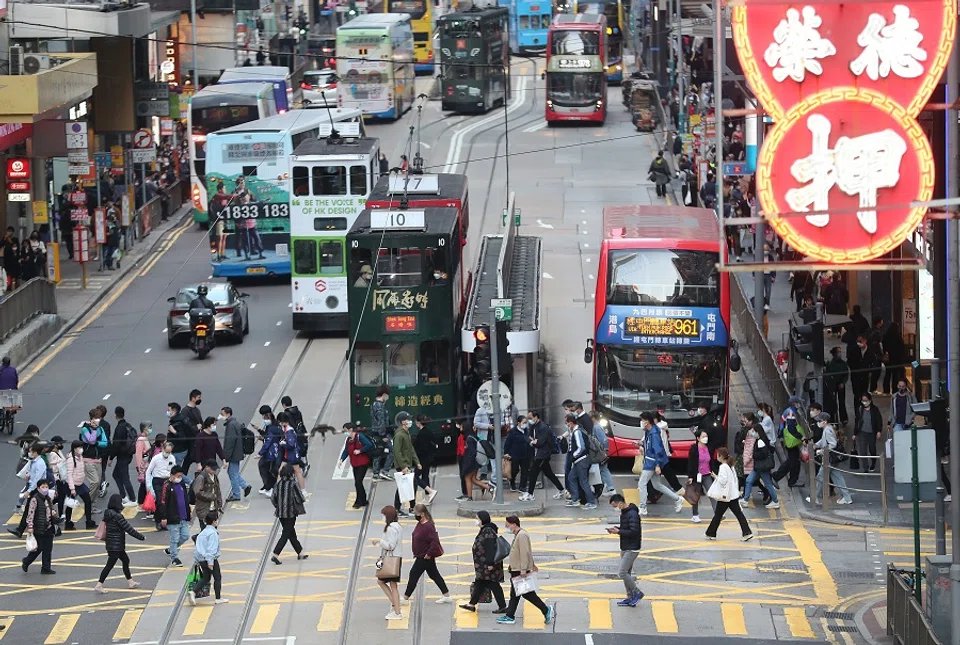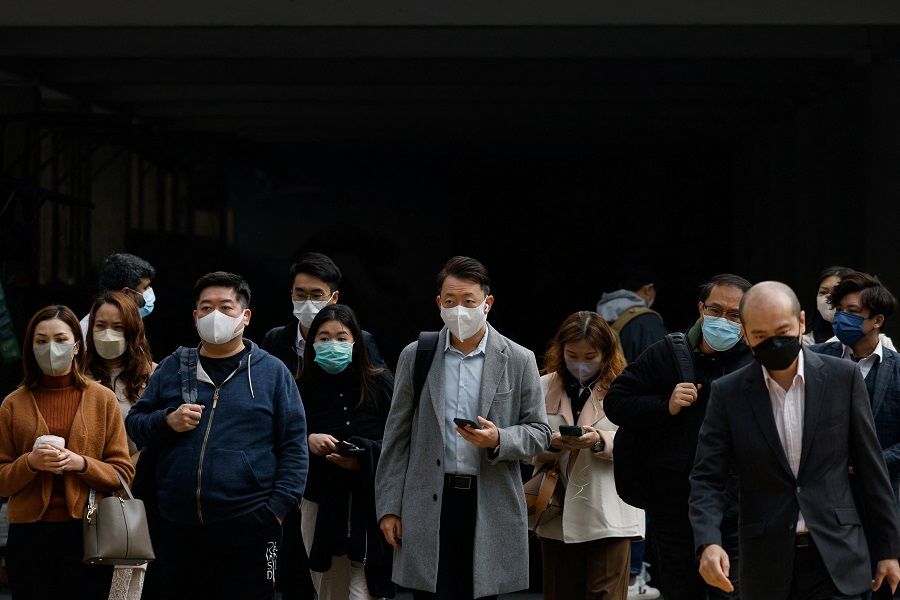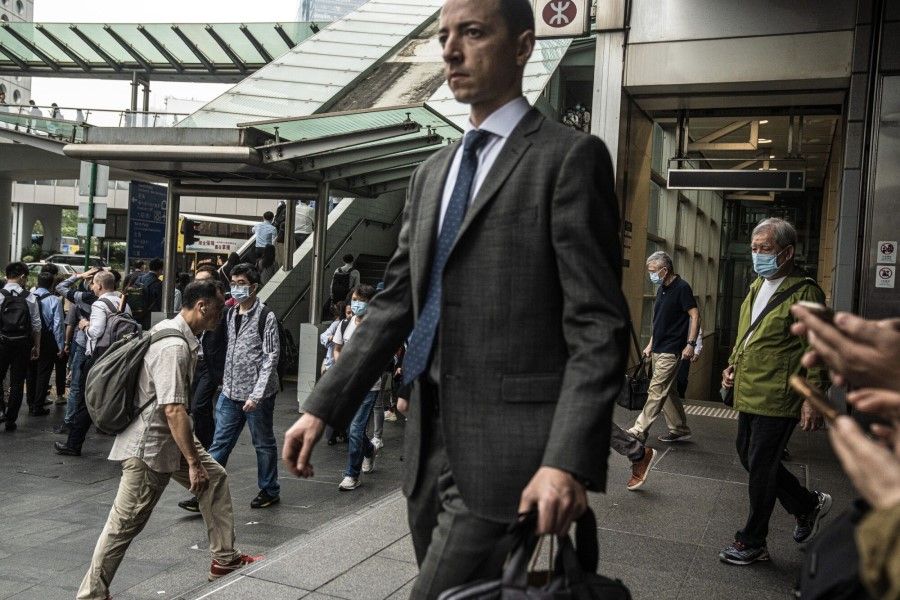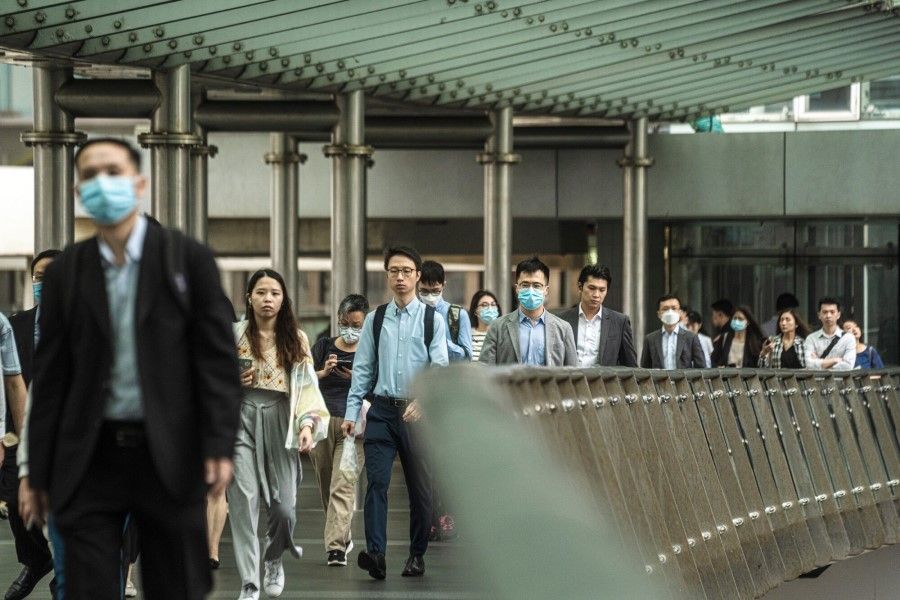Hong Kong's talent attraction strategy facing controversies and challenges

The Top Talent Pass Scheme (TTPS) introduced by the Hong Kong government to attract talent has so far received over 20,000 applications, far exceeding the authorities' expectations.
Hong Kong Secretary for Labour and Welfare Chris Sun Yuk-han, who is in charge of the scheme, recently said that the authorities are considering expanding the scheme to allow graduates from more reputable universities to work in Hong Kong.
Influx due to mainland situation
Over the past few years, Hong Kong has been facing significant labour shortages due to a massive emigration wave and aggravated by the low birth rate and ageing population. The Hong Kong government announced a series of measures late last year, including the introduction of admission schemes for professionals and quality migrants, as well as the TTPS, in the hope of attracting talent from around the world to urgently alleviate the shortage in Hong Kong's workforce.
Among the measures, the TTPS attracted the most attention because its requirements are not too difficult to fulfil - without needing to secure an offer of employment, persons with an annual income of at least HK$2.5 million (US$318,000), or graduates from the world's top 100 universities, are eligible to apply for the scheme and come to Hong Kong. Hence, even though countries such as Singapore and Japan are also competing for talent, Hong Kong's TTPS has garnered widespread attention since its introduction.
The launch of the TTPS also coincided with the implementation of stringent anti-Covid measures across various mainland Chinese cities. Amid elevated public discontent, many among China's middle class and younger generation were considering how they could "escape" the situation.

Although the anti-Covid measures have since been relaxed, some people have already lost confidence in the Chinese government and decided to move to Hong Kong, leading to the considerable number of TTPS applications in the past few months.
Faced with immense social pressure, Hong Kong's Labour and Welfare Bureau eventually revised the requirements and made it mandatory for TTPS applicants to disclose any criminal convictions.
Application loopholes and homogenous applicants
Some analysts thus believe that Hong Kong's strategies to grab talent are seeing results. However, the scheme has also created much controversy since its launch. For example, a pregnant mainland Chinese woman claimed to have successfully given birth in Hong Kong under the TTPS, and even formed social media groups to share her experience with mainlanders. The incident triggered a huge backlash on the Hong Kong internet after it was reported by the Hong Kong media.
It was also revealed that in early February, He Jiankui, a mainland scientist who was sentenced to three years in prison for illegal medical practice after claiming to have created the world's first gene-edited babies, was allowed to enter Hong Kong under the TTPS, causing an uproar in Hong Kong society.
Faced with immense social pressure, Hong Kong's Labour and Welfare Bureau eventually revised the requirements and made it mandatory for TTPS applicants to disclose any criminal convictions. But the incident had already dealt a blow to the scheme.
Applicants from other regions accounted for around 1% respectively, which is almost negligible.

Objectively, the two aforementioned applicants may have exploited loopholes in the TTPS, but their applications still complied with the scheme's procedures. Alternatively, this also reflects that the Hong Kong government has been negligent and careless in reviewing the applications in its desperation for talent, thus weakening the credibility of the TTPS.
However, the biggest problem since the launch of the TTPS is the homogenous background of the applicants. The Hong Kong government recently revealed for the first time that as of February this year, 8,797 applications have been approved under the TTPS, of which 95% are from mainland China. Applicants from other regions accounted for around 1% respectively, which is almost negligible.
Hong Kong has long been known for its sound rule of law, high work efficiency and freedom of living. However, the international perception of Hong Kong has changed significantly in recent years. Many foreigners who have visited Hong Kong feel that the city is no longer the same, especially in having less freedom. The fact that the TTPS applicants are so homogenous illustrates that Hong Kong has become less attractive to international talent.
But between 2010 and 2019, only 12% became permanent residents after living in Hong Kong for seven years.

This is a rather dangerous signal. If Hong Kong wants to remain a globalised market, it cannot only attract talent from mainland China but must also stay attractive to overseas talent. After all, talent from mainland China and the West excel in different fields. If Western talent are unwilling to come to Hong Kong, the city will gradually lose its advantage of "one country, two systems".
Challenge of retaining talent
In fact, while Hong Kong remains attractive to many mainland Chinese, it remains to be seen whether these applicants will become part of Hong Kong's workforce.
In 2020, the Hong Kong Legislative Council released a research report that revealed that from 2003 to 2012 the Hong Kong government approved nearly 60,000 applications under the Quality Migrant Admission Scheme launched in 2003. But between 2010 and 2019, only 12% became permanent residents after living in Hong Kong for seven years.
While there is currently a lack of data to analyse the effectiveness of the TTPS, past data show that it is indeed doubtful whether the scheme can attract a large number of talent to Hong Kong. In fact, the TTPS does not require applicants to work in Hong Kong after being approved under the scheme, and many successful applicants from mainland China may choose not to do so - some use their Hong Kong identity cards as travel visas instead.

On the other hand, there are also questions about whether the TTPS will put pressure on the talent market in mainland China. In recent years, many countries including China have been trying their best to attract talent. The generous conditions of the TTPS have attracted outstanding talent from mainland China to Hong Kong, leading to a talent bleed in mainland China, which may also affect relations between both places.
Evidently, the enthusiasm of applicants for the TTPS does not truly indicate the scheme's success. Hong Kong's talent attraction strategy can only be effective in the long run if the government improves the living environment of its residents, including social support and a stable and healthy real estate market, to attract talent to develop themselves and put down roots in Hong Kong.
This article was first published in Lianhe Zaobao as "香港抢人才策略能奏效吗?".
